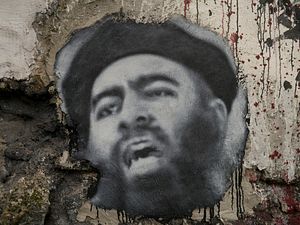More than four decades have passed since Brian Jenkins, an expert on security, first represented “terrorism as theater” in a report for the RAND Corporation. Yet, to this day, leaders and policymakers countering terrorism implement strategies composed mostly of military and police actions—little is done to oppose the theatrics. Taking theater as a model, terrorism relies on live performers and unwitting live participants to present the experience of an imagined event, an event in which the perpetrators wield power over the victims. Each piece, or attack, is not meant to appeal to thought, but to feeling. The influence of emotion, is the true asymmetric power of terrorism and is key to developing effective strategies to prevent acts of violence.
The American public may identify terrorism as the most important problem facing the United States, but it is in fact a nominal risk in the U.S. and other advanced countries. Over the course of more than 40 years, from 1968 to 2010, terrorist incidents killed just 258 people in the U.S. (excluding the September 11, 2001 attacks, an outlier in both national and international data sets). By way of comparison, motor vehicle accidents killed more than 35,000 people in 2013 alone. In terms of reducing the national mortality rate, American policymakers would do significantly better to re-allocate resources to the prevention of texting and driving. For many people, however, this alternative use of resources simply would not feel right. What is this intuitive sense that the risk of terrorism should merit a substantial response?
In his 1994 book, Descartes’ Error, neurologist António Damásio wrote: “We are not thinking machines. We are feeling machines that think.” Damásio proposed that emotions guide, or bias, behavior and decision-making. As performance, terrorism uses killing in sensational and unpredictable ways to communicate threat. It appeals directly to emotion. Take as an example the decision-making of a Parisian, before and after the November 2015 Paris attacks by Islamic State. Before the incident, a Parisian would be unlikely to assess the probability of death prior to visiting a local café, restaurant, or theater, as their emotional input would simply be the desire to enjoy a pleasant evening out. After the terrorist attacks, even with the knowledge that the risk of an incident is negligible, a Parisian could find their rationality skewed by the specter of threat. Terrorism as performance is successful when a hum of uncertainty pervades society and causes people to think twice before behaving in ways typical of la vie quotidienne (everyday life).
Leaders are no less affected by terrorism’s appeal to emotion and may in fact be more vulnerable to bias in behavior. The assumption underlying most policy is that rational information properly structured can guide decisions and achieve rational, desirable outcomes. There is little room in the policy-making process for the consideration of emotional input, an absence that has persistently undermined the best intentions of leaders. On November 16 of last year, three days after the Paris attacks, President François Hollande addressed a special congress of both houses of parliament. There, he stated that France was “at war,” extended a state of emergency, and proposed security measures. While his measures were certainly more constructive than those of former U.S. President George W. Bush after the September 11 attacks, who declared an impossible, abstract “war on terror,” President Hollande’s statement inadvertently strengthened Islamic State’s emotional appeal. A Parisian guided by the fear that the prospect of war elicits would be rational to think: “If my president is declaring war, then surely there must be reason to fear for my safety.”
The strategy of Islamic State and other groups that commit terrifying acts of violence is to leverage fear and uncertainty to influence societies to act in ways that, while rational, are contrary to defining values and ideals. Executed successfully, this strategy bolsters ideological narratives that support the recruitment, retention, and performance of operatives. In this regard, al-Qaeda was immensely successful after September 11. The perception of threat compelled American policymakers to support practices that the U.S. constitution was written to protect against—unreasonable searches and seizures, due process of law, and cruel and unusual punishment. As they implemented a cellular organizational structure, al-Qaeda was able to point to purportedly random searches, the Guantanamo Bay detention camp, and enhanced interrogation practices to substantiate their narrative and numbers as they set up in new locales. Fortunately, terrorist groups do not have exclusive domain over theatrics. Leaders too can use performance as a counter strategy to influence emotion and upstage would-be perpetrators of violence.
First, leaders should understand that by definition they are “always on.” In this regard, President François Hollande responded well to the Paris attacks. He was proactive on both the national and international stage. It is important for people to see their leaders, military, and police take action. Second, leaders should consider the probable emotional, and then rational, interpretation of their communication. Messages of war elicit fear and incomplete frames elicit uncertainty, playing into the hands of terrorist groups. Leaders should speak to national values, providing powerful, relatable examples of those values realized. This would communicate assurance and certainty. (It must be noted, though, that a fine line exists between messages of national solidarity and pacification.)
Last, leaders should allocate time and resources to regularly assess the pathos of their communication about terrorism. This would enable them to realize what messages inspire confidence and outline future responses. Leaders are hardly new to theatrics, particularly in countries where a voting public determines political tenure. But performance has taken on a new significance and, now more than ever, strategic showmanship matters.
Gregory Daniels is an American-Canadian information and communication strategist. Gregory holds an M.S. in international affairs from the S. Rajaratnam School of International Studies, Nanyang Technological University in Singapore. This article has previously been published on the EastWest Institute Policy Innovation Blog.
































